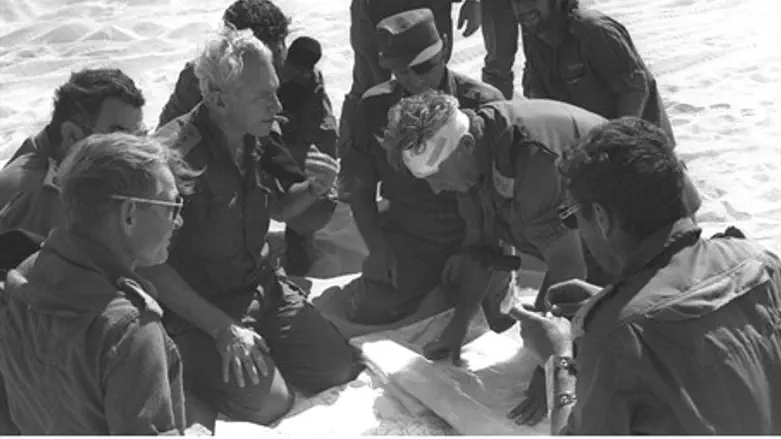
As Israel is set to mark 40 years since the Yom Kippur War, Lieutenant Colonel (Reserves) Avi Gur, who served as a battalion commander in the war, says the milestone should bring with it a fresh take on the traditional Israeli narrative.
In an interview with Arutz Sheva, Gur says the time has come for Israelis to realize that even though the war caught Israel's leaders unprepared, the efforts of the military are a cause for great pride.
The Yom Kippur War began on the holiest day of the Jewish Calendar in 1973 when an Arab force led by Egypt and Syria made a joint surprise attack on Israeli positions in the Sinai desert to the south, and the Golan Heights on Israel's northern border.
Despite a grim start, with an Egyptian offensive crossing the Suez Canal and advancing deep into the Sinai Peninsula within three days, Israel had mobilized and then began pushing the Egyptian forces back, launching a counter attack of its own, pushing through the Suez Canal and reaching the road to the Egyptian capital, Cairo.
In the north, following a fierce attack on the Golan Heights, within three days the IDF had pushed the Syrians back and launched a four-day counter-offensive deep into Syrian territory.
The war is often known for the failure of the military and political echelon to recognize signs of an upcoming war and for not issuing an order for a pre-emptive strike against the Syrians and Egyptians, when the imminent outbreak of war became apparent.
Defense Minister Moshe Dayan assumed that Israel would win any war started with the Arabs and was concerned that Israel should not appear as the aggressor, for he believed this could cost much-needed US support. Following the heavy defeats of the first two days of the war, Dayan's views changed radically.
Despite the 2,656 IDF soldiers killed in the war, which was second only to the War of Independence in terms of casualties, Gur says the time has come for Israelis to let the military victory take its place in the sun.
"Just like the Israelites needed 40 years to enter the land of Israel, so too now, 40 years on, we the Israeli people are better prepared to understand what happened back then in the war."
Gur says: "What was considered a political failure is not connected to the performance of the military that was the greatest victory in the last 100 hundred years."
Last year, Gur gave his verdict on the military victory to then Minister for Education Gidon Saar who agreed to include the study of the military victory in the school curriculum.